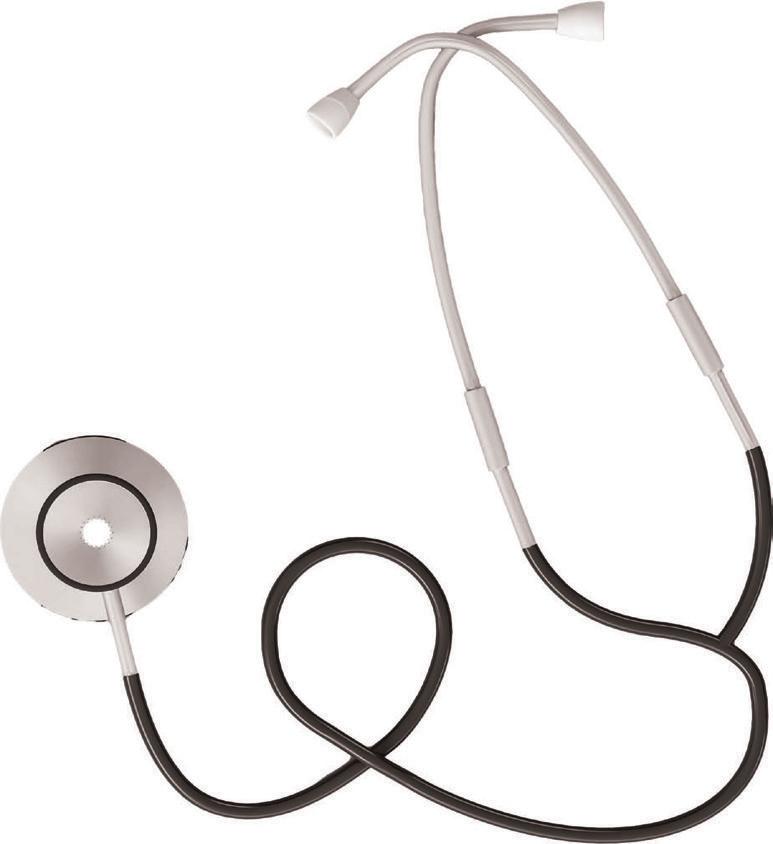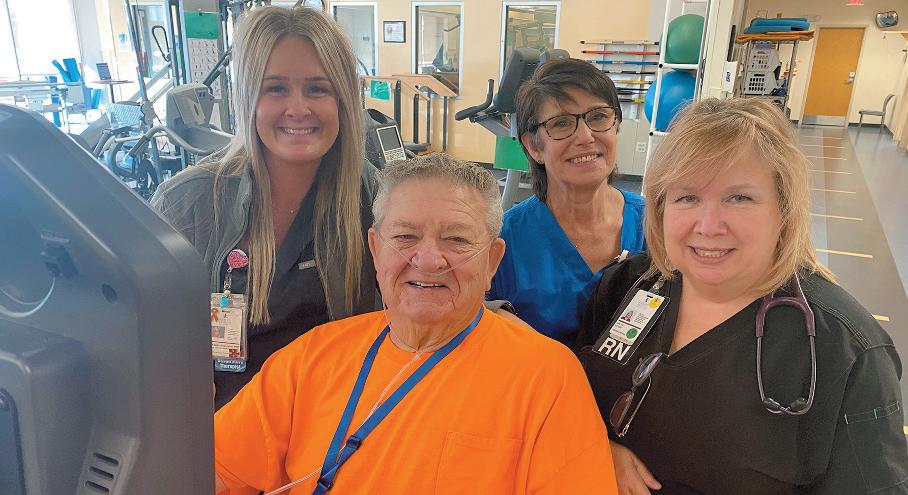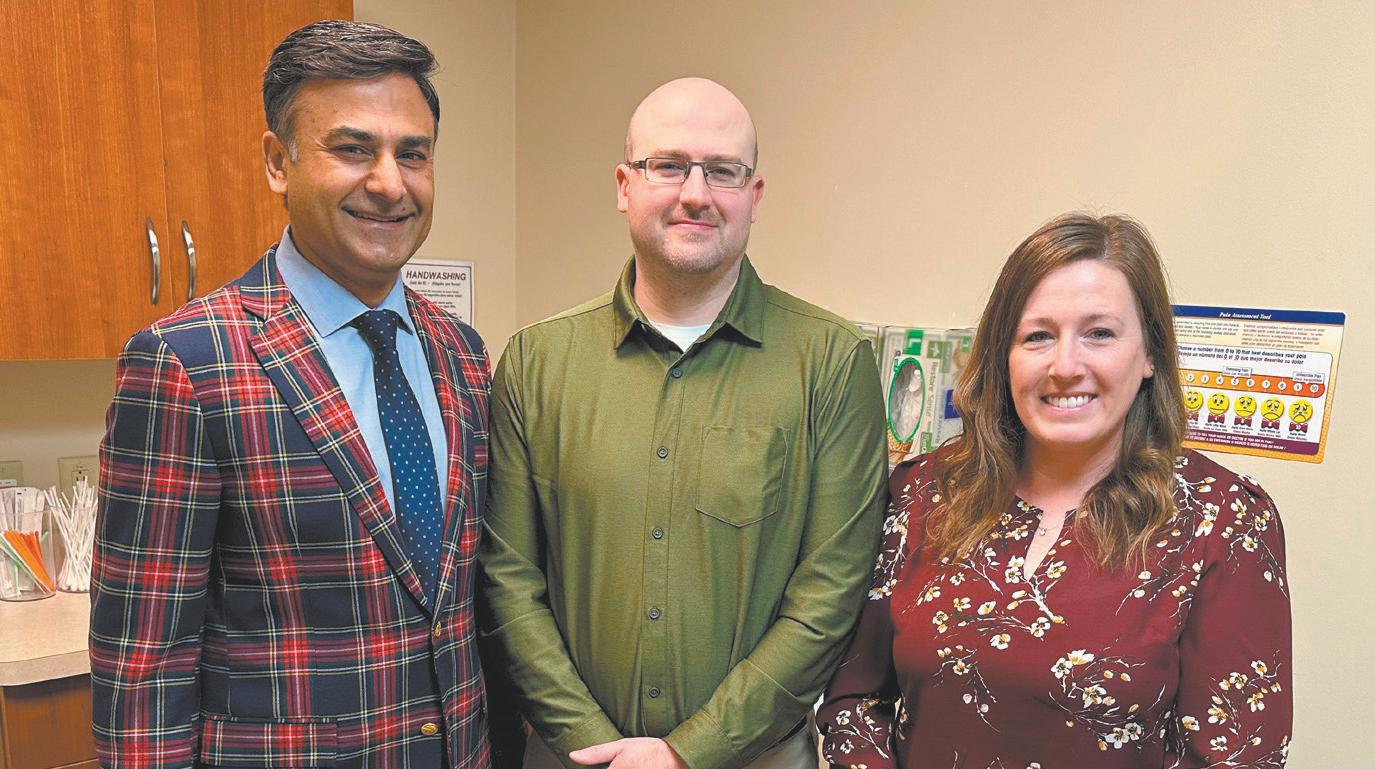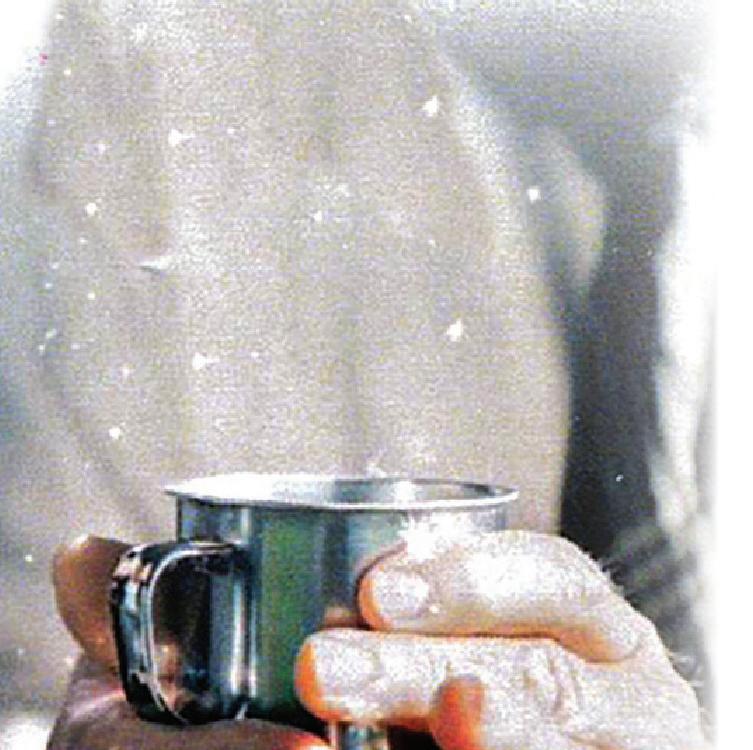Keep your brain sharp as you age
Cognitive decline is on the minds of many adults as they get older. Memory loss and trouble processing things can sometimes be a side effect of aging, as Everyday Health says the brain changes in size and structure as a person gets older. These changes can affect how well the brain works over time. Furthermore, illnesses affecting the brain, such as Alzheimer’s disease, may start showing their symptoms in people when they’ve reached their mid-60s, says the National Institute on Aging.
Cognitive decline and dementia are not a certainty of aging. But older adults interested in strengthening their brains may want to consider these strategies.
EXERCISE REGULARLY
Staying physically active helps maintain blood flow to the brain, which also helps reduce the risk for hypertension.
ADDRESS HIGH BLOOD PRESSURE
High blood pressure can increase the risk of heart disease and stroke. Maintaining healthy blood pressure

and cholesterol levels is associated with better cognitive function, according to data published in 2021 in the Journal of Alzheimer’s Disease.
USE ALL YOUR SENSES
Harvard Health says the more senses used in learning something, the more of the brain that is involved in retaining the memory. Studies have shown that images paired with pleasant aromas leads to better recall later on.
EAT BRAIN-HEALTHY FOODS
According to Cone Health Medical Group, studies show eating fish rich in omega-3 fatty acids, like tuna, salmon and mackerel, decreases risk for cognitive decline. People should avoid saturated fats, trans fats and hydrogenated oils.
READ AND WRITE FREQUENTLY
According to a study in the journal Neurology, regular reading and writing in one’s older years reduced the rate of memory decline by 32 percent. Joining a book club or simply reading more on one’s own can improve cognition. Similarly, writing improves memory

and communication abilities and can help strengthen the brain as well.
DRINK HEALTHY BEVERAGES
Tea and coffee can improve alertness and focus, as they’re rich in polyphenols and antioxidants. A Place for Mom says caffeine in these beverages
can help solidify new memories. Avoid drinking sugary beverages and limit consumption of alcohol, as neither boasts brain-boosting properties.
Keeping the brain sharp is a multilayered process that involves healthy foods and beverages, exercise and brain-stimulating activities. FP242677




17 THE TIMES The Times /shawlocal.com/mywebtimes • Saturday, February 24, 2024 OTT SENIOR LIVING Member of the National Association of Medicare Supplement & Medicare Advantage Plans. We are state licensed agents that continue to be of service throughout the year. Call 815.223.9394 to speak to a licensed agent 1222 Shooting Park Rd, Suite 102 | Peru IL 61354 We take the mystery out of Medicare, helping you avoid costly mistakes. TURNING 65? WE’RE HERE TO HELP. ALREADY ON MEDICARE? You may be overpaying and don’t even know it! Let us help you at no cost to you! Medicare supplements can be changed at any time! Contact us to discuss your Medicare Health Plan options including Medicare Supplement, Medicare Advantage, and Part D Prescription Drug Plans. SM-LA2143888 4127 Progress Boulevard, Peru, IL 61354 www.wallacecenterforhearing.com BETH WALLACE, M.S., CCC-A AUDIOLOGIST 24 YEARS OF EXPERIENCE ILLINOIS VALLEY’S TRUSTED AUDIOLOGIST VISIT WALLACE CENTER FOR HEARING FOR ALL OF YOUR HEARING HEATHCARE NEEDS! We service all makes and models of hearing aids. New patients are welcome! We will honor your manufacturer warranty, regardless of where you purchased your hearing aids. CALL TO SCHEDULE YOUR APPOINTMENT TODAY! (815) 223-3201 HEARING EVALUATIONS FOR ALL AGES HEARING AID FITTINGS AND REPAIRS • CERUMEN REMOVAL
Shoulder Surgery at Morris Hospital Gives New Lease on Life
At 76 years old, Morris resident Lois Stamper was understandably frustrated when persistent shoulder pain started affecting her everyday life. Unable to do basic tasks such as reaching the top shelf of the cupboard or putting on earrings, Stamper decided it was time to take back control of her life by getting help for her shoulder pain.
With an extensive history of orthopedic surgeries -- including two hip replacements and a back surgery -- Stamper knew the pain she was experiencing in both shoulders was something she could no longer live with. Even though she considers herself a “seasoned professional at getting orthopedic surgeries,” she admits she was nervous at the prospect of a shoulder replacement – let alone two.
“The pain in combination with not being able to do simple things like putting on deodorant or lotion was the final straw for me to agree to surgery,” says Stamper. “I was nervous I would never be able to regain the ability to do everyday tasks again.”
In 2021, Stamper began looking for an orthopedic surgeon who specialized in shoulders. She was hoping one of the surgeons with Morris Hospital Orthopedic & Sports Medicine would be able to help. It was at the recommendation of orthopedic surgeon Dr. Keith Rezin, who replaced Stamper’s left hip, that she meet with Dr. Robert Williams, a fellowship-trained orthopedic surgeon with Morris Hospital Orthopedics & Sports Medicine who has sub-specialization in total shoulder replacements and elbow surgery. Dr. Williams sees patients in the Ottawa, Morris, and Joliet offices.
From her first appointment with Dr. Williams, Stamper says she knew he was the one. She was most impressed
with Dr. William’s bedside manner and the way he explained things.
“Dr. Williams is a fantastic surgeon. From the first time I met with him, he made me feel comfortable and really explained how the shoulder works. That matters when you are choosing a surgeon.”
During Stamper’s first surgery in 2021, Dr. Williams performed a reverse total shoulder replacement on her left side. She says the pain relief she felt from the moment she woke up from surgery was “life changing” and that after so many years with crippling pain she was ecstatic to be able to think about something besides the pain. That inspired Stamper to focus all her energy into physical therapy. It wasn’t long before she regained full range of motion in her left shoulder.
He was as excellent the second time as he was the first.”
After two successful shoulder replacements and many physical therapy sessions, Stamper is back to living her independent lifestyle. She says that Dr. Williams changed her life, calling him a “top-tier surgeon.”
“Dr. Williams is a fantastic surgeon. From the first time I met with him, he made me feel comfortable and really explained how the shoulder works.”
-Lois Stamper
Today, Stamper encourages others who have shoulder pain to seek help. “Anyone who thinks they have no option but to learn to live with their shoulder pain is dead wrong,” she says. “There are amazing surgeons in our community like Dr. Williams who helped me go from horrible pain to nearly pain free.”
For more information about Morris Hospital Orthopedics & Sports Med-

icine, visit www.morrishospital.org/ orthopedics or call the Ottawa office, located at 1306 Gemini Circle, at 815433-0850.


Little did Stamper know that nearly one year later, she would be back meeting with Dr. Williams to talk about surgery for her other shoulder. While the pain she was now experiencing in her right shoulder was very similar to the pain she previously felt, this time, she was no longer willing to tolerate what she calls unnecessary pain. Stamper says there was never any doubt in her mind that she would get the other shoulder replaced by Dr. Williams as well.
“I called Dr. Williams and asked him if he was ready for round two,” she says. “I knew without a doubt that I trusted him to operate on me again.




18 OTT The Times / shawlocal.com/mywebtimes • Saturday, February 24, 2024 THE TIMES SENIOR LIVING
www.mazelumber.com | WATER STREET, PERU (815) 223-1742 Bring your home to Life. SM-CL2140962 Plan ahead to ensure that your wishes are honored. We can help give you and your family peace of mind. Oakwood Memorial Park 2405 Champlain St. • Ottawa | 815-433-0313 oakwoodmemorialpark.net Call us today for more information: You Know You Want To Be Cremated, But do they?
Lois Stamper, of Morris, has a new appreciation for being able to perform everyday tasks following two shoulder replacement surgeries at Morris Hospital.
SENIOR LIVING
Better Breathing with Pulmonary Rehabilitation

Bill Button remembers his first encounter with Morris Hospital’s Pulmonary Rehabilitation program: he was not happy to be there. He admits he was even a little mad at the nurses and respiratory therapists for making him exercise, and he gave them a hard time.
It didn’t take long for Button to realize that what they were asking him to do was actually helping. Today, the 81-year-old Morris man is one of Pulmonary Rehab’s biggest cheerleaders.
“I tell everyone who comes in, ‘Just do what they tell you and you’ll look and feel better,’” he says.
Button first started his journey in 2022 when he noticed he was having trouble breathing due to chronic obstructive pulmonary disease. He recalls barely being able to finish a six-minute physical test on his first visit to Pulmonary Rehab.
“The more we tried to increase Bill’s exercises, his oxygen levels would drop,” says Patti Holmberg, RN, Pulmonary Rehabilitation Charge Nurse at Morris Hospital.
The Pulmonary Rehab team recommended oxygen, a move that initially angered Button. But they encouraged him to “trust the process.” Placing Button on oxygen would allow him to continue with rehab, which was needed to help build back his physical and lung strength.
When Button first started Pulmonary Rehab, he was using 4 liters of oxygen every time he exercised and throughout the day. As he slowly rebuilt his strength, his dependence on oxygen decreased. Today, he rarely uses oxygen during the day and can even go on a one-mile walk or play a round of golf without using any oxygen at all.
“I do ride in a golf cart, but I couldn’t even play before without oxygen,” he said.
Although he still uses oxygen at
night, Button has been able to lower his dose significantly. He has also lost 60 pounds since starting Pulmonary Rehab, and he was able to decrease the dosage of his diabetes medication.
“I think it’s great,” Button’s wife, Carol said. “My gosh, to go from being on oxygen 24 hours a day and not being able to do much to the way he is now …. It’s terrific.”
The key to Button’s success?
“He kept coming to rehab,” Holmberg says. “He kept exercising.”
After graduating from Phase 2 pulmonary rehabilitation, Button opted to continue with Morris Hospital’s Phase 3 pulmonary rehabilitation, which offers an open gym style, supervised exercise program on twice weekly so graduates of Phase 2 can continue to strengthen and improve their lung strength.
Today as Button walks the indoor track in the rehab gym, he stops to encourage new patients by sharing his story, letting them know that the small steps they take today will make a difference. He tells them that when he first started rehab, he could only walk about four laps around the rehab track. Today he does 55.
He also lets new patient know that the rehab team is here to help.
“They saved my life,” he adds. “If it wasn’t for them, I don’t know where I’d be.”
Morris Hospital’s Pulmonary Rehabilitation program is for individuals who have been diagnosed with a medical condition that affects their breathing, such as chronic obstructive pulmonary disease (COPD), pulmonary fibrosis, emphysema, asthma, shortness of breath, cystic fibrosis, hypoxemia or pneumonia. A physician’s order is required to participate. To learn more, go to morrishospital.org/ pulmonaryrehab or call 815-705-7837.

Local Resources
For Your Health
Ottawa Campus
1306 Gemini Circle, Ottawa 815-433-9200
Family Medicine:
Dr. Hassnain Syed
Dr. Jeffrey Tanzi
Ashley Blough, F.N.P.-B.C.
Angela Todd, F.N.P.-B.C.
Pediatrics: Dr. Melissa Hill
Marseilles Healthcare Center
580 Sycamore St., Marseilles 815-795-2122
Pediatrics: Dr. Ian Best
Family Medicine: Ashley Blough, F.N.P.-B.C.
Orthopedics & Sports Medicine
1306 Gemini Circle, Ottawa 815-433-0850
Orthopedic Surgeons:
Dr. Paul Perona
Dr. Robert Williams
Foot & Ankle Surgeon:
Dr. Kyle Pearson
Orthopedic Spine Surgeon: Dr. Mir Ali

Cardiovascular Specialists
1703 Polaris Circle, Ottawa 815-705-1000
Cardiologists:
Dr. Syed Ahmed
Dr. Mostafa Ghanim
Dr. Mary Menz
Dr. Athar Saeed
Obstetrics & Gynecology Specialists
1300 Starfire Dr., Ottawa 815-324-9700
OB/GYNs:
Dr. Yahaira Aramburo
Dr. Victoria Ochoa
Dr. Douglas Toussaint
Newark Healthcare Center
5 N. Johnson, Newark 815-695-5042
Family Medicine:
Jennifer Frye, F.N.P.-B.C.
Seneca Healthcare Center 271 N. Main St., Seneca 815-357-8511
Family Medicine: Dr. Colin Kao
Nina Seplak, F.N.P.-B.C.
19 THE TIMES The Times /shawlocal.com/mywebtimes • Saturday, February 24, 2024 OTT
morrishospital.org
Visit
our website to learn more about Morris Hospital services in your area!
With help from respiratory therapists and registered nurses with Morris Hospital’s Pulmonary Rehabilitation program, 81-year-old Bill Button of Morris has significantly improved his quality of life.
Notable senior health concerns
The human body changes as it ages. While certain conditions are commonly associated with aging, some individuals may be surprised to learn of the more common health conditions that can affect seniors. The World Health Organization says one in six people will be 60 or older by 2030. With such a large portion of the population on the cusp of turning 60, it makes sense for individuals to familiarize themselves with the more notable issues affecting seniors.
COGNITIVE DECLINE
A certain degree of memory loss is a natural component of aging. Forgetting where you left your keys or experiencing difficulty putting a name to a face can be a random and frustrating occurrence. However, dementias, like Alzheimer’s disease, are not a side effect of aging. As many as one in five seniors experiences mental health issues that are not associated with aging, and it helps to learn the early warning signs of dementia. Such recognition may compel individuals to seek treatment that can slow the progression of the disease.
OSTEOARTHRITIS
Aches and pains may come with aging, and often can be attributed to osteoarthritis, which is the most common form of arthritis, according to the Mayo Clinic. Osteoarthritis occurs when the protective cartilage that cushions the ends of bones wears away over time. It is progressive and cannot be reversed, but maintaining a healthy weight and staying active can help alleviate pain and improve joint function.
CATARACTS AND REFRACTIVE ERRORS
It should come as no surprise to most that the eyes change as the body ages. Refractive errors like nearsightedness, farsightedness, astigmatism, and presbyopia can make objects look blurry when viewed, says the National Eye Institute. Cataracts, which are a clouding of the eye’s natural lenses, affect about 20 percent of people age 65 and older, according to the American Geriatrics Society, while the National Eye Institute says half of all people over age 80 will get them. Cataract removal surgery and prescription eyeglasses can help.

TYPE 2 DIABETES
American Senior Communities reports that it’s estimated 25 percent of adults age 65 and older have type 2 diabetes. Unchecked diabetes can lead to a host of ailments, including vision problems, mobility issues, kidney damage, and increased risk for heart disease or stroke. Many people can manage type 2 diabetes with diet and exercise.
HEART DISEASE
The National Institute on Aging says adults age 65 and older are more likely than younger people to suffer from cardiovascular disease that affects the heart, blood vessels or both.
Conditions like high blood pressure and high cholesterol need to be properly managed, and diet and exercise is important throughout life to avoid developing heart disease in later years.
BALANCE ISSUES
Balance issues that can lead to falls are a major concern for seniors. According to HealthinAging.org, many things can adversely affect balance. These include nerve and brain problems, vision troubles, diabetes, arthritis, inner ear problems, and even dehydration. Dizziness or balance problems should be addressed, as there are serious health risks associated with falls. FP242666







20 OTT The Times / shawlocal.com/mywebtimes • Saturday, February 24, 2024 THE TIMES SENIOR LIVING Hagi & Schultz Funeral Home understands this is a difficult time to have a funeral for your loved one. We are here to assist you in the grieving process and provide your loved one with the compassionate, dignified funeral they deserve. Offering Traditional Funerals, Cremation Services and Prearrangements To Fit Any Budget. 205 High St., Streator, IL 815-672-2420 | hagischultzfh.com SM-CL2140095
Liberty Estates of streator Not-for-Profit Provider www.libertyvillageofstreator.com Month to Month Rental | No Endowment Fees Two Buffet-Style Meals Daily | Laundry & Hosuekeeping and Much, Much MORE ! CALL US TODAY for more information & schedule a tour! SM-CL2140482 2322 Eastwood Ave., Streator 815-672-1900 Simply the Finest in Retirement Living
Corey Schultz, Funeral Director
Safely manage multiple medications
Individuals who are 60 and older are accustomed to making routine trips to the pharmacy to fill prescriptions. In fact, the Centers for Disease Control and Prevention notes that roughly 84 percent of adults between the ages of 60 and 79 use one or more prescription medications.
Prescription medications prolong individuals’ lives and can make their daily lives more comfortable and manageable. As individuals age, their doctors may recommend various prescriptions, some of which they may need to take long-term. Managing multiple medications at once can be difficult, as it can be easy to lose track of which medications have been taken when individuals are prescribed more than one. In recognition of that difficulty, the National Institutes of Health offers the following tips to help individuals safely manage multiple medications.
• Maintain an updated list of all medications you take. The NIH notes a medication list should include both prescription and over-the-counter medications. OTC medicines include vitamins, supplements and herbal products.
• Share your medication list with family or close friends. A medication list should be accessible, and seniors can even share it with close family members, who can then advise medical professionals like EMTs, nurses and emergency room doctors which medicines you are taking in emergency situations when you may not be conscious.
• Routinely review your medicine list with health care providers and pharmacists. The NIH recommends individuals discuss their medicines with their physicians during each appointment. Ask if all medicines still need to be taken and if dosages should be changed. When visiting specialists, be sure to provide a list of all medications you are currently taking.
• Ask questions about newly prescribed medications. Drug interactions can be dangerous, so it’s important to ask if and how any newly prescribed medications may interact with drugs, vitamins or supplements you are already taking.
• Alert health care providers to any new side effects. Immediately contact your physician if any new side effects pres-

ent. The NIH recommends individuals continue to take their medications unless their doctor says otherwise.
• Use a pill organizer. A pill organizer makes it easy to manage multiple medications and can help individuals re-
member which pills they have taken. Millions of individuals 60 and older take more than one medicine each day. Some simple strategies can ensure seniors safely manage their medications. FP242672
LESS PAIN. FASTER RECOVERY. CLOSE TO HOME.
If you have degenerative joint disease in your knees or hips, choose the advanced care at OSF HealthCare Saint Elizabeth Medical Center in Ottawa and OSF Medical Group – Orthopedics in Mendota.
Our surgeons use Mako SmartRobotics™ technology for minimally invasive knee and hip replacements. With this technology, you can expect:
• Less pain after surgery
• Shorter hospital stay
• Faster recovery
• Better outcome











21 THE TIMES The Times /shawlocal.com/mywebtimes • Saturday, February 24, 2024 OTT
SENIOR LIVING Get advanced knee and hip replacement at OSF HealthCare
Get more information at os ealthcare.org/joint




































